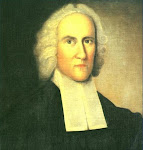One of the main purposes of this blog will be to help you and me develop a thoroughly biblical worldview, that is, a set of presuppositions that lead us to think as Bible-saturated Christians about all the realities around us, from our work to politics to war and peace to sports to eating lunch. Since Halloween is coming up in just a few days, it seemed right that the first “Worldview Corner” commentary should concern Christians and the question of how exactly we should deal with this strange holiday. The fundamental biblical principle that applies to this question of Halloween appears, of course, in 1 Corinthians 10:31 (ESV): “So, whether you eat or drink, or whatever you do, do all to the glory of God.” Given that we are to live for God’s glory in all things, how exactly can the followers of Jesus honor God in our relationship to Halloween? Can we glorify God by observing it to some degree, or do we give him greater honor by seeking to ignore the day altogether, or by practicing some alternative in between? This is a difficult question, because believers who love Jesus and who conscientiously seek to apply Scripture to their lives have come to different conclusions on this question. I have known Christians who have concluded that the Lord permits their children to dress up in costumes and trick or treat. I have known other believers-- just as faithful to Christ-- who not only do not allow their children to trick or treat but who darken their homes on October 31 and give out no candy to others. To be perfectly candid, our own family has gone back and forth through the years on the question of whether our children would be allowed to dress up and go around the neighborhood collecting candy and other treats.
I think there at least two principles concerning Halloween on which all Christians should agree. One, Christians have no business at all toying with witchcraft or black magic or anything of the sort, practices which some groups flaunt on Halloween, because of its decidedly pagan origins. The Bible condemns all practices of witchcraft in no uncertain terms, because those practices are from the devil and thus can only do harm to those who carry them out. The basic biblical statement on this point appears in Deuteronomy 18:10-12, which is utterly comprehensive in its condemnation of witchcraft: “There shall not be found among you anyone who burns his son or his daughter as an offering, anyone who practices divination or tells fortunes or interprets omens, or a sorcerer or a charmer or a medium or a wizard or a necromancer [person who seeks to bring up the spirits of the dead], for whoever does these things is an abomination to the Lord.”
Why are practices of the magical arts an “abomination to the Lord”? God condemns witchcraft because it arose from pagan superstitious practices and thus would do nothing but spiritual harm to those who practiced it. Practices of black magic were part of animistic religions that knew nothing of the one true God who created and who rules all things. Magic is a purely human effort by which its practitioners believe they can gain a certain measure of authority over their personal circumstances. The Bible teaches to the contrary that such supremacy belongs only to the Lord, who alone rules in total sovereignty over all things (Psalm 115:3; Daniel 4:34-35; Acts 17:24-26; Romans 11:36; etc.). Magic thus dishonors God because it purports to steal from him sovereignty that is his alone. Nothing about witchcraft and its motives has changed in the 35 centuries since God spoke the words of Deuteronomy 18 to his people, so I would argue they remain in full force for the followers of Jesus today. For Christians, then, dressing a child as a witch or other similar character is not an option. We are not even to give the appearance of condoning the wicked and destructive practices of witchcraft.
Beyond that point, I would add that since observance of Halloween appears to be a matter of Christian freedom, when we speak with fellow believers who draw a different conclusion for our own, we should treat them with respect and Christian love. However, it is also true that as believers who seek to honor God in all things, we must not choose a position on Halloween simply because it is what everyone else around us is doing-- or not doing. As parents we owe our children the responsibility of praying and thinking about this matter with an open heart before God, seeking his wisdom as to how we might glorify him (James 1:5-8). Probably the best advice we could heed on this whole subject comes, not surprisingly, from the Apostle Paul, who wrote that in matters of Christian freedom, “One person esteems one day as better than another, while another esteems all days alike. Each one should be fully convinced in his own mind. The one who observes the day, observes it in honor of the Lord . . . . For none of us lives to himself, and none of us dies to himself. If we live, we live to the Lord, and if we die, we die to the Lord” (Romans 14:5-8).
As a postscript, let me remind you that every October 31 is a good day to remember the courage of Martin Luther, the great Protestant leader who on that date in 1517 launched the Reformation by nailing to the door of the Castle Church in Wittenberg, Germany, his famous Ninety-Five Theses. Whatever else we may or may do on October 31, one great practice is on that day is to give special thanks to God for raising up Martin Luther to restore to the church the glorious doctrine of justification by faith alone.

Great article! Thanks for writing about this topic.
ReplyDelete